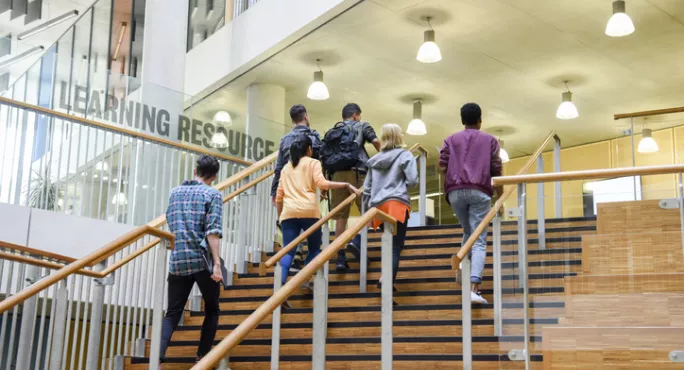T levels: what lessons can be learned from year one?

September 2020 saw the launch of three T levels: education and childcare; design, surveying and planning; and digital production, design and development. They are being delivered by 44 colleges, schools and private training providers across the country.
As we near the close of the first year of delivery, some of the first-wave providers have been reflecting on their experience. No one could have anticipated at the beginning of the T-level development process that the major challenge schools and colleges would face in the first year of delivery would be a pandemic the like of which hasn’t been experienced for 100 years. Despite this, all the providers were very positive about their experience in three key areas: impact on students, staff and work with employers.
In many cases, enrolment numbers were better than expected. Students (and parents/carers) have been enthusiastic - student attendance, engagement and feedback has been positive. Some T-level students have also had the opportunity to engage directly with the secretary of state and skills minister about their experience and provide feedback directly to Department for Education officials.
News: Just 12% of employers aware of T levels qualifications
Long read: Delivering the first T levels - what’s it been like?
T levels: Employers to get £1K per placement
Teachers have benefitted from focused professional development and engaging with a new curriculum offer. They welcomed being part of an iterative process, feeding back on early copies of specifications and direct contact with awarding organisations. They have embraced the opportunity to think differently and reimagine planning. T-level planning has also influenced other parts of the curriculum - for example, the induction period and rigorous diagnostic testing to make sure students were on the right course. Perhaps most importantly, both teachers and managers have enjoyed the opportunity for cross-sector engagement and peer learning, getting to know and share ideas with colleagues up and down the country to an extent they haven’t done previously.
A lot of the focus on employer engagement has been on industry placements (more of that later), but providers were keen to stress how T-level planning and delivery had helped them more generally to strengthen relationships with employers and work with them in a variety of ways including co-planning and project briefs.
No major curriculum change comes without its challenges, however much time is spent on planning, and T levels have been no different. Clearly, as with other programmes and despite a rapid move to online delivery, the pandemic has impacted the student experience and wellbeing. It was felt that some students needed greater support when they progressed from school as they had lost learning in the summer term of 2020. The pandemic meant that the national promotion of T levels was put on hold. Things that usually just happen, such as assessors accessing students in childcare placements, where the placements could take place, became difficult and in most cases had to be postponed.
T levels: the long-term questions
More important in the long term are the questions that will not begin to fade as the pandemic hopefully becomes a distant memory. Is the funding sufficient to attract the specialist staff required to deliver T levels? How can we ensure there is more informed information advice and guidance in schools? And from across the virtual room, there were questions about how to make placements in digital industries, or indeed in any setting with digital infrastructure, work.
We acknowledge the announcement in May of an employer incentive for T-level placement for the coming year. However, in a sector where the majority of staff are currently working, and may well continue to work, remotely for most if not all of the week, it is very difficult to set up meaningful and high-quality face-to-face placements. To futureproof the T-level industry, placement experience in this sector may need a tweak or a more radical change of direction. However, the community that has built up between T-level providers means that even this challenge could be overcome if all stakeholders, employers, T-level providers and the DfE work together to reach a decision that works for all, but most importantly, for students.
What was truly impressive about the group of 2020 colleges and schools was that even the greatest challenge to world health in a century hasn’t dented their enthusiasm to provide the best student experience possible. Let’s hope next year gives staff the opportunity to deliver the student experience they are planning for now.
Kirsti Lord is the deputy chief executive of the Association of Colleges and chair of the AoC’s Diversity and Inclusion board
Register with Tes and you can read two free articles every month plus you'll have access to our range of award-winning newsletters.